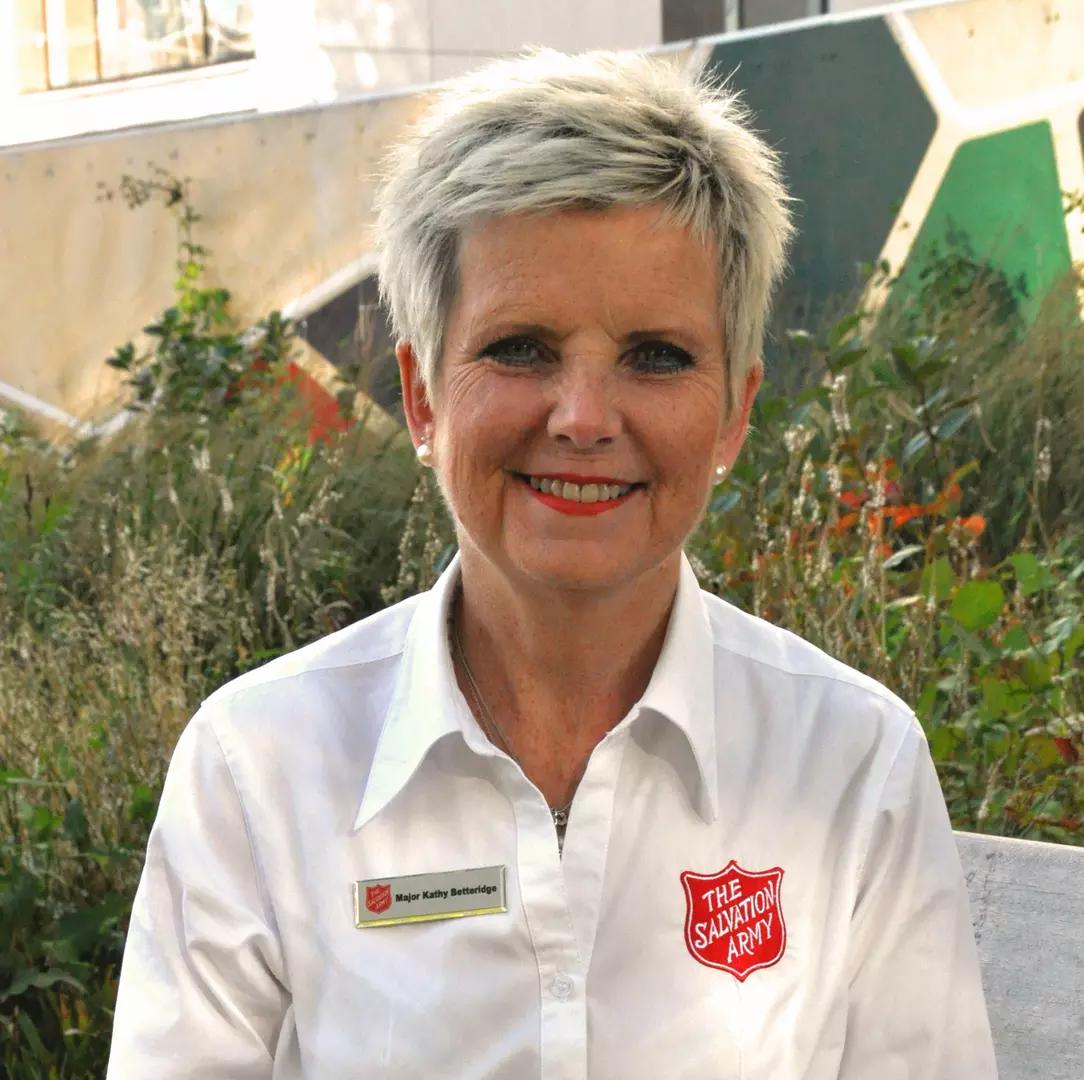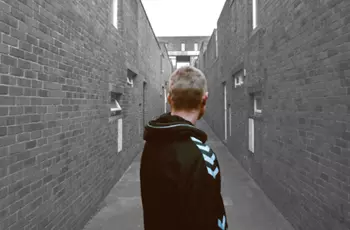Modern Slavery Victims Too Fearful to Seek Help
published on 14 Oct 2024
New figures released today show that fewer modern slavery victims in England and Wales are accessing Government specialist support. The Salvation Army is warning the decrease shows criminals are finding it easier to keep people trapped while the vile trade in human life is still prevalent in the UK today.
The figures released today to mark Anti-Slavery day show that for the first time in thirteen years, there has been a 22% decrease in the number of people accessing the modern slavery support services The Salvation Army runs on behalf of the Government.
New Laws preventing victims from seeking support
Record numbers of people are turning down the opportunity to be referred to specialist support to recover by choosing not to enter the Government system for identifying and supporting victims, knows as the National Referral Mechanism. (NRM) *
The downturn in people coming to The Salvation Army for help is by the church and charity attributed to recent changes in law conflating modern slavery with immigration which have made victims fearful that contact with official authorities will lead to prison or removal. In addition stricter eligibility criteria have meant fewer people are being recognised as victims of modern slavery and so unable to access vital support. **
Concerned that victims are being pushed back into the hands of the traffickers, The Salvation Army estimates that for every one survivor of modern slavery given the opportunity to receive support, at least thirteen more remain trapped and exploited. ***
Which is why it's even more important for the general public to learn to Spot the Signs.
Modern Slavery is not an immigration issue
Major Kathy Betteridge, Director of Anti-Trafficking and Modern Slavery at The Salvation Army said:
“Modern slavery remains a low risk, high reward operation for criminals. When we speak to survivors in our care, it’s clear that, before they experienced the support and protection we provide, many felt it was safer to suffer at the hands of their captors than risk speaking to authorities and being treated as a criminal rather than a victim.
“Two key pieces of legislation designed to tackle immigration could be having the unintended consequence of driving modern slavery further underground - The Nationality and Borders Act (2022) and the Illegal Migration Act (2023) which has not been implemented yet due to the change in Government.
“These have created a climate of fear, where people who have experienced modern slavery cannot trust that they will be treated as victims of crime and given the support they need.
“Modern slavery is not an immigration issue; it is a human rights issue. Indeed British people are the second most common group accessing our help. We need to encourage every person exploited in slavery to break free by treating them as genuine victims of crime.
The Salvation Army is calling on the public to help identify and report signs of exploitation and for the government to reassess policies that may be inadvertently pushing victims further into the shadows. If we fail, we risk strengthening the traffickers’ hand and losing our chance to combat this escalating international crime. ”
Number of survivors supported
The latest figures from The Salvation Army’s annual report****, released to mark Anti-Slavery Day, show that in the past year, 2,741 potential victims of modern slavery entered their support services. This is 792 fewer people than the previous year, marking a 22% decrease.
- Of those who entered The Salvation Army’s support services last year*:
- 64% experienced forced labour.
- 19% were sexually exploited.
- 10% faced criminal exploitation.
- 6% endured domestic servitude.
- 61% identified as male, 39% as female, and less than 1% as transgender.
There were over 100 nationalities.
Over the last 13 years, The Salvation Army and its partners have supported 24,565 survivors to rebuild their lives, providing medical care, counselling, legal advice, and safe accommodation.
Mark's Story
The Salvation Army and its partners are determined to reach those still trapped, so they can provide help to people like Mark, who was exploited by criminals taking advantage of his vulnerability due to a severe drug addiction.
The traffickers coerced him into working for their drug operation, luring him with promises of payment to sustain his habit and obstructing his access to medical care and support services that could help him overcome his addiction. Rescued by a police operation, Mark was identified as a victim and referred to The Salvation Army. Since arriving at a Salvation Army safehouse, his life has been transformed.
The support team helped him access medical care and gradually reduce his addiction, leading to him being free of hard drugs for three years. Mark now feels much more positive and secure; he is seeking a home of his own and is confident he will soon be able to find work once his remaining health problems have improved. Mark said:
“At first, I thought these men were my friends. I was so desperate, I believed they were helping me by giving me this job. They made me work from 8am to 2am the next day, every day. They stopped me getting methadone to come off the drugs or medical help for my legs. I was in a really bad way but it was impossible for me to get to hospital. Every day they pushed me deeper and deeper into debt. I didn’t want to admit that I’d been tricked and abused.
“The Salvation Army are like family to me. I can go to them for anything and they will help. I can ask them anything and not be judged but given honest answers. They are amazing.”
The Salvation Army’s free confidential 24/7 referral helpline 0800 808 3733 is available for anyone who suspects they or someone they have met may be a victim of modern slavery and needs help.
The full Modern Slavery 2024 report and information on how The Salvation Army supports survivors, can be found on our website here
* Duty to Notify refers to the process First Responders must undertake to record a potential victim of trafficking who does not consent to enter the NRM. The DTN process came into force in 2015. In 2022 the Home Office received 4,580 reports of potential victims (adults only) through the DTN process compared to 4,929 reports in 2023. [NRM (National Referral Mechanism) End of Year Summary Statistics 2022 NRM (National Referral Mechanism) End of Year Summary Statistics 2023]
** The number of individuals referred to the Home Office has barely changed from 2022 to 2023 (16,938 in 2022 and 17,004 in 2023) Yet the number of survivors receiving a positive reasonable grounds decision, permitting them to receive Government-funded support has seen a dramatic decline: 88% of Reasonable Grounds decisions in 2022 were positive but only 55% of Reasonable Grounds decisions were positive in 2023.[ [NRM (National Referral Mechanism) End of Year Summary Statistics 2022. NRM (National Referral Mechanism) End of Year Summary Statistics 2023]
*** This figure was uncovered by comparing the Global Slavery Index estimate of 122,000 people [Walk Free Global Slavery Index]in the UK in slavery with the number of people offered support to recover from their exploitation through the Government’s system to identify and support victims of modern slavery. In 2023, only 8,319 positive reasonable grounds decisions were issued. Therefore, for every survivor given the opportunity to enter support, it is estimated there are at least thirteen people still living in modern slavery. [ NRM (National Referral Mechanism) End of Year Summary Statistics 2023]
****3July 2023 – June 2024


